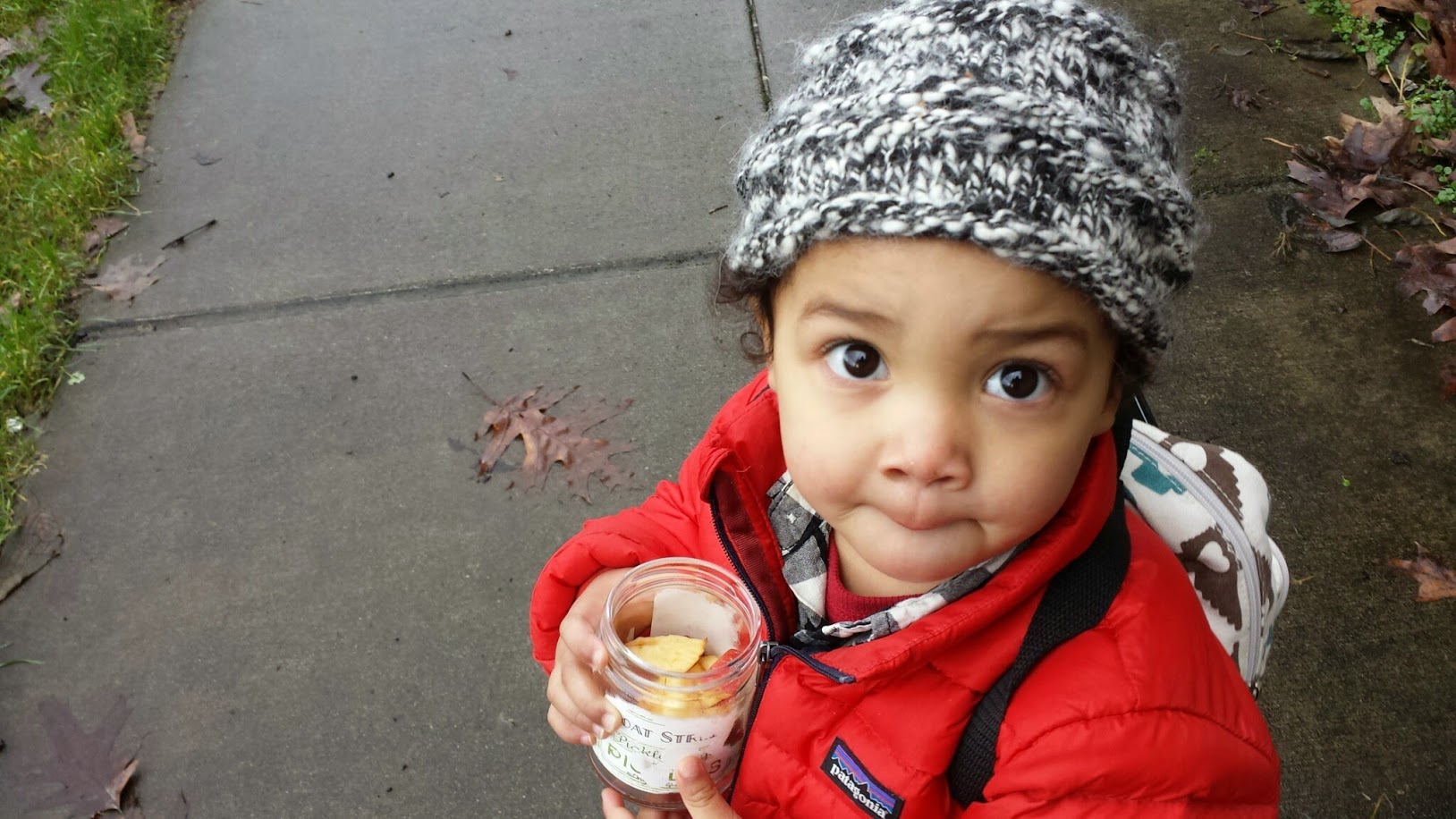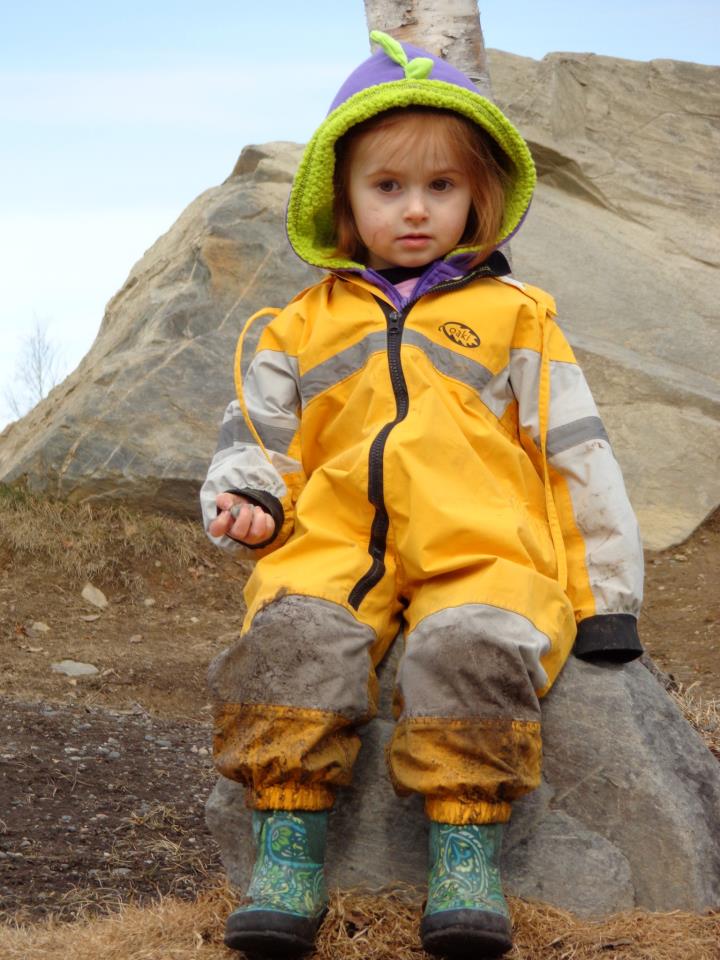
If student loans were available for preschool, a child could start kindergarten with $57,000 dollars of debt, says Andrew Jay, CEO of Seattle's Tiny Trees Preschool.
Jay uses the example of 16-month-old Charlie, daughter of fellow Tiny Trees cofounders Teddy and Annie McGlynn-Wright, to illustrate the point. Recently, Charlie was on a waiting list for five preschools in the Seattle area, with costs that ranged from $12,000 to $19,000 a year — higher tuition than the University of Washington, and more money than her parents can afford.
It was Tiny Trees’ ability to put this financial burden into human terms, and to design a innovative nature-oriented preschool model focused on affordability, which helped it win Best Nonprofit Start-Up and a $15,000 grant in the 2014 Seattle Venture Partners Fast Pitch competition.
The Tiny Trees preschool model, which will be piloted in 2016, saves time and money by eliminating the need for brick-and-mortar buildings: It plans to locate outdoor preschools in parks around the Seattle area.
Children will benefit both by developing a connection to nature and by moving their bodies more, which counteracts the dismal trend towards less activity for preschoolers. A recent Seattle-based study published in the journal Pediatrics noted that preschoolers typically spend an average of only 48 minutes a day in active play. With childhood obesity rates at 17 percent, more exercise is critical for children’s health.
In just over a year, Tiny Trees is well on its way toward making their vision a reality. In October 2015, Seattle Parks and Recreation approved a plan that will allow Tiny Trees to operate in nine parks locations, each with a total of 32 students. (The location of these parks will be announced soon; find out more and enroll here.) Six schools will open in the 2016 pilot program, with 96 spots available. If successful, three more will open in 2017. Tiny Trees’ goal is to have 20 preschools operating by 2020, located throughout King, Snohomish and Pierce counties.
While there are no “uber philanthropists” behind Tiny Trees,” says Jay, the nonprofit has raised an additional $100,000, mostly through grassroots donations.
On the academic side, the school will employ licensed educators who will use an evidence-based curriculum recommended by the City of Seattle called High Scope. This educational approach is based on research that says children learn more through self-directed play that includes guidance and support from teachers.

Outdoors all day?
In order to be successful, Tiny Trees must help parents overcome concerns about their children being outdoors all day. When Seattle resident Nancy Nordgren learned about Tiny Trees, she said her initial thought was, “I don’t know how they [will] keep them warm."
It’s a common worry, but Jay is quick to point to a history of “nature schools” in other countries, such as Denmark, Norway and Germany, where winters can be extremely cold. There are many local outdoor-oriented preschools as well, from Vashon Island’s Cedarsong Nature School to Fiddleheads Forest School in the Washington Park Arboretum.

Tiny Trees plans to keep kids warm and comfortable by selecting parks that will provide ample shelter and bathrooms. Additionally, they will be tipping their hats to the Swedish proverb that says, “There is no bad weather, only bad clothing” by outfitting children with Oakiwear rainsuits. Tiny Trees also intends to partner with existing indoor preschools, so kids can spend four to six hours outdoors counting pinecones and listening to birds, and two to four hours indoors, enjoying a hot lunch and a nap.
Many parents, of course, will flock to Tiny Trees precisely because of the amount of outdoor time their kids will enjoy. "A lot of parents want a nature-rich education for their children,” says Jay, citing several studies that estimate the average child has as little as four minutes of unstructured outdoor time per day. Kirkland resident Miriam Haile agrees: “My generation grew up outdoors — and I think we sort of took it for granted.” Now she’s a board member for Tiny Trees.
As far as fees, Tiny Trees says their preschools will cost 20–25 percent less than other schools. The highest cost for any preschool is staffing, says Jay, so while Tiny Trees won’t be building facilities, they will be “putting more eyes on the ground,” particularly necessary in an outdoor environment, by providing a lower-than-typical teacher-student ratio.
To further reduce costs for families, the goal is to have at least two-thirds of their families receive a subsidy or tuition discount through the Seattle Department of Education and Early Learning (DEEL) or through Tiny Trees itself. They will know by the end of January 2016 if they are an approved provider for DEEL. (Through DEEL, families that make less than 300 percent of poverty level will receive free preschool paid for by the city.)
How to sign up, no deposit required
So how do interested parents sign up? You can register for a Tiny Trees preschool on its website, a process that includes choosing a park site or suggesting a new location. “What you are doing by enrolling now,” says Jay, “is casting a vote for a location.”
When a child turns three, their parents will be invited to an open house to learn of the exact location of the school. Dates for open houses will be announced this winter; keep up to date by checking tinytrees.org.
Learn more about Tiny Trees and outdoor preschools
• Attend ParentMap's free Seattle Preschool Preview on Saturday, Jan. 23, from 10 a.m. to 12 p.m. at Safeco Field to learn more about Tiny Trees and other preschools.
• Find information on several City of Seattle financial assistance programs for preschool
More resources on outdoor preschools, the benefits of nature connection for kids and preschool checklists
A Walk in the Woods: Article by Richard Louv on the benefits of nature connection for kids
10 steps to finding a preschool for your child
Bilingual preschools for kids around Seattle
Is co-op preschool right for your family?











